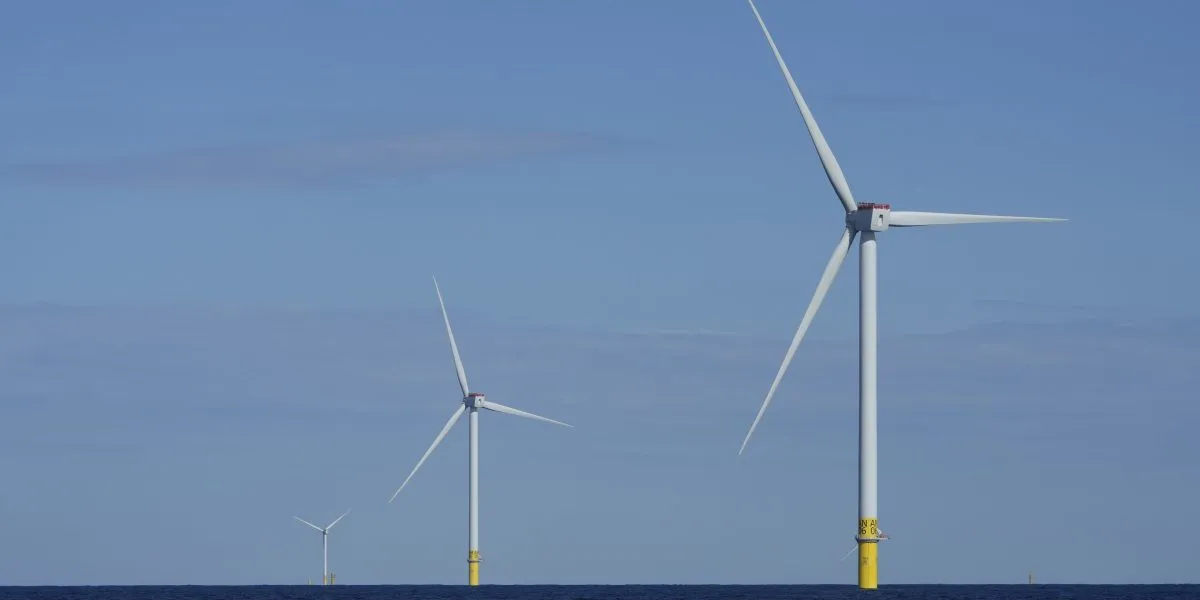
Danish wind farm developer Orsted has announced that its ambitious Revolution Wind project is approximately 80% complete, with 45 out of the planned 65 turbines already installed. Despite this significant progress and having cleared years of federal and state reviews, the project has hit a major setback. On Friday, the Bureau of Ocean Energy Management (BOEM) issued an order stating that the federal government needs to reassess the project to address unspecified national security concerns. This unexpected halt raises questions about the future of renewable energy development in the U.S.
The order comes amid a broader political backdrop where former President Donald Trump has actively prioritized fossil fuels over renewable energy initiatives. Recently, Trump labeled wind and solar power as “THE SCAM OF THE CENTURY!” through a social media post, pledging to reject both wind and solar projects. He stated, “The days of stupidity are over in the USA!!!” on his Truth Social platform, reflecting a significant resistance to the advancement of renewable energy.
In contrast, scientists worldwide emphasize the urgent need for nations to adopt renewable energy solutions to mitigate the severe impacts of climate change. These impacts include extreme weather conditions such as intense heat, droughts, larger wildfires, and catastrophic flooding due to hurricanes and rainstorms. The Revolution Wind project was anticipated to play a crucial role in addressing these challenges.
Rhode Island Governor Dan McKee expressed his discontent with the federal stop-work order, stating that he and Connecticut Governor Ned Lamont will explore all possible avenues to reverse this decision. Both governors, representing the Democratic Party, highlighted the importance of the Revolution Wind project for their states. Construction on the project began in 2023, with expectations for it to become fully operational by next year.
Orsted is currently assessing the financial implications of this construction halt and is contemplating potential legal actions. The Revolution Wind project is situated more than 15 miles south of the Rhode Island coast, 32 miles southeast of Connecticut, and 12 miles southwest of Martha’s Vineyard. This project is particularly vital for Rhode Island and Connecticut, as they have limited space for land-based energy projects, making offshore wind a key component for achieving their climate goals.
Connecticut Senator Richard Blumenthal criticized the BOEM's decision, calling it illogical and a significant setback for a project that had already employed hundreds of skilled workers. He emphasized the critical nature of Revolution Wind for Connecticut, vowing to challenge the halt on construction. The project was expected to be the first commercial-scale offshore wind farm for both Rhode Island and Connecticut, capable of powering over 350,000 homes.
Wind power currently stands as the largest source of renewable energy in the United States, contributing around 10% of the nation’s electricity generation. However, as noted by Erik Milito, president of the National Ocean Industries Association, the U.S. has only one fully operational large-scale offshore wind project. He emphasized the necessity for a diversified energy portfolio, including oil, gas, wind, and emerging technologies, to meet the growing energy demands.
Interestingly, the decision by BOEM received support from Green Oceans, a nonprofit organization that opposes the offshore wind industry. They praised the federal government's actions to protect the delicate ocean ecosystem off the coasts of Rhode Island and Massachusetts. This situation reflects the ongoing tension between environmental protection and energy development.
This halt marks the second significant offshore wind project that the current administration has paused. The Empire Wind project in New York faced a similar fate but was allowed to resume work following interventions from Democratic leaders, including Senator Chuck Schumer and Governor Kathy Hochul.
Critics of the current administration's energy policies, such as Kit Kennedy from the Natural Resources Defense Council, argue that the government is prioritizing outdated and polluting energy sources while hindering the growth of renewable energy sectors like wind and solar. Kennedy stated, “Unfortunately, every American is paying the price for these misguided decisions,” highlighting the urgency for effective energy policy reform.